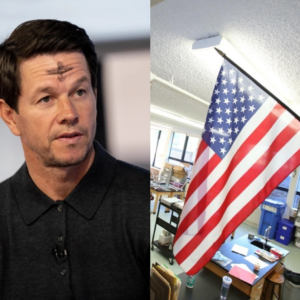In a bold and controversial statement, former NFL quarterback Colin Kaepernick has vowed to leave the United States and relocate to Russia if he continues to face what he calls a lack of respect in his home country. The provocative statement comes as Kaepernick continues to stand by his views on racial justice and inequality, even in the face of backlash from critics who argue that his protests have polarized the nation.

Speaking to reporters during a press conference for his latest initiative, Kaepernick expressed frustration with the ongoing challenges he faces in the U.S., including the continued fallout from his kneeling protests during the national anthem. He remarked, “If the respect for my beliefs and my efforts to promote equality doesn’t improve here, I will have no choice but to relocate. Russia is a place where my values could be respected, and I would consider it a viable option.”
The comments have already stirred strong reactions, with some praising Kaepernick for his unwavering stance on social justice, while others have criticized him for his remarks. Supporters argue that Kaepernick’s decision to continue speaking out against systemic racism and injustice is commendable, especially given the adversity he has faced since his initial protest in 2016. However, his decision to invoke Russia in his statement has raised eyebrows, with many questioning the implications of such a drastic move.

Political analysts have also weighed in on Kaepernick’s comments, speculating that this may be more of a symbolic statement rather than a literal plan. “Colin Kaepernick has always been someone who seeks to challenge the status quo,” said political commentator Tom Reed. “This could be a way for him to highlight the extent of his frustration with the current political and social climate in the U.S. If anything, it’s a reminder of the deep divisions in the country that have only intensified in recent years.”
Kaepernick’s departure from the NFL in 2016 followed a series of high-profile protests against racial inequality, during which he kneeled during the national anthem. His actions sparked a nationwide conversation about police brutality, racial injustice, and the treatment of Black Americans in the U.S. Since then, Kaepernick has continued to advocate for social change through his nonprofit organization and various public appearances.
In a recent interview, Kaepernick shared that he feels alienated by the political climate in the U.S. and the backlash he received for his protests. “It’s about respect,” he said. “Not just for me, but for all the people fighting for a better world. If that respect isn’t given, I have to consider my options. Moving to Russia is not off the table if the situation here doesn’t change.”

The news of Kaepernick’s potential move to Russia comes at a time of increasing political and social tension in the U.S. The country is facing challenges related to systemic racism, economic inequality, and political polarization, with many figures from various walks of life speaking out against the status quo.
As the story continues to develop, it remains unclear whether Kaepernick’s comments were meant to be taken literally or if they were part of a larger strategy to bring attention to his cause. However, one thing is certain: Kaepernick’s willingness to challenge the norm and his readiness to take a stand—no matter where it leads—remains unchanged.
For now, the question remains: will the United States find a way to bridge the divide, or will it lose one of its most vocal and influential critics to a faraway land? Only time will tell.





